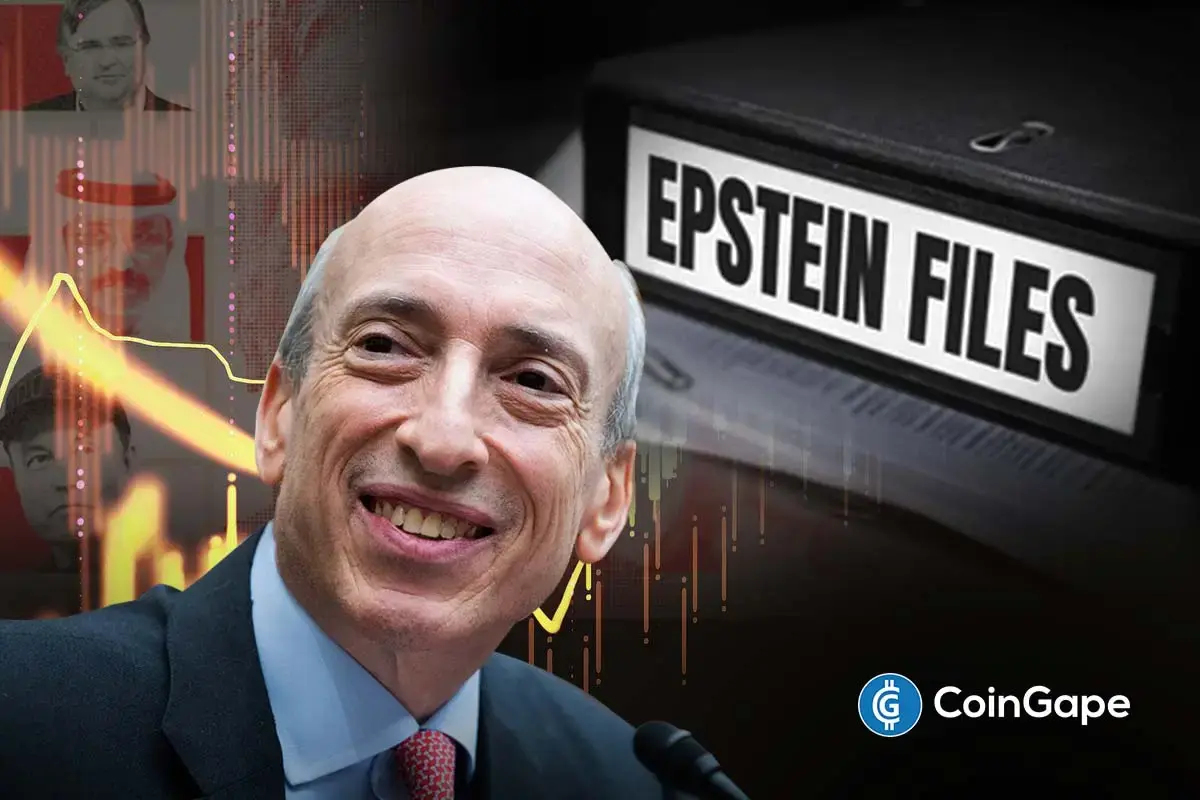Crypto Crackdown: Biden Admin Opposes Bill Challenging SEC’s SAB 121

Highlights
- Biden to veto H.J. Res. 109, keeping SEC's SAB 121 restrictions on crypto custody by financial firms.
- SAB 121 imposes costly capital requirements on banks for digital asset custody, sparking congressional opposition.
- Industry critics claim SEC bypassed procedures with SAB 121, hindering crypto innovation and market security.
The Executive Office of US President Joe Biden has announced its intention to veto proposed legislation, H.J. Res. 109, which seeks to allow highly regulated financial firms to act as custodians for Bitcoin and other cryptocurrencies by overturning the SEC’s Staff Accounting Bulletin (SAB) No. 121.
Veto Against Overturning SEC’s SAB 121
H. J. Res. 109, a bill to nullify the SEC’s Staff Accounting Bulletin (SAB) No.121, was strongly objected to by the Biden administration. SAB 121 introduces the limitations for financial institutions regarding the safekeeping of digital assets.
The Executive Office, as a result, indicated that if H.J. Res. 109 were presented to the President, he would veto it on the grounds of disrupting the SEC’s efforts to protect investors and also the broader financial system.
H. J. Res. 109 is a bill that was introduced under the Congressional Review Act (CRA) to nullify SAB 121. This resolution seeks to eliminate obstacles that stop regulated financial institutions from acting as custodians of digital assets in general, including Bitcoin, by overriding this bulletin.
Congressional Support and Opposition
SAB 121 overturn has been called for by US Congressman Patrick McHenry, House Financial Services Committee Chair. He argued that the bulletin is a regulatory overreach by the SEC under the leadership of Gary Gensler.
In addition, McHenry pointed out that SAB 121 places high capital and liquidity requirements on banks, thereby making it impractically expensive for them to custody digital assets, which goes against the traditional asset custody approach.
McHenry’s position is shared by other congressmen and by French Hill in particular, who stated that holding reserves against assets in custody was not a standard practice in the financial industry. Subsequently, they argue that SAB 121’s prescriptions are unfounded and should be eliminated to enable financial institutions to manage digital assets effectively.
Holding reserves against the assets held in custody is NOT standard financial services practice.
The Biden Admin's SAB 121 is misguided and should be nullified. I thank @USRepMikeFlood for his excellent work in leading a CRA resolution to roll back the SEC's failure in their… pic.twitter.com/jwaTYWxhXs
— French Hill (@RepFrenchHill) May 8, 2024
However, the Biden administration and proponents of SAB 121 argue that the bulletin is significant in preserving the integrity of financial markets and safeguarding investors from the instability and threats posed by digital assets. They contend that the existing regulatory system, enforced by SAB 121, is necessary to prevent financial instability and maintain a stable market environment.
Industry Reaction and Implications
Cody Carbone, Chief Policy Officer at The Chamber of Digital Commerce, lamented the Biden administration’s decision to veto H. J. Res. 109. He contended that SAB 121 practically prevents trusted custodians from administering digital assets.
In addition, he slammed the SEC for violating the Administrative Procedures Act by issuing the bulletin without public comments or openness.
Discouraged that President Biden issued a Statement of Administration Policy saying he would veto H.J. Res 109, the Joint Resolution to nullify the SEC's Staff Accounting Bulletin (SAB) 121.
SAB 121 effectively prohibits trusted custodians from being able to manage digital… pic.twitter.com/QIb1wqXTAF
— Cody Carbone (@CodyCarboneDC) May 8, 2024
Concurrently, critics such as Jake Chervinsky noted that SAB 121 violated the CRA and APA to hurt the crypto industry. Moreover, he pointed out that the White House backing SAB 121, especially in an election year, was a relatively poor strategic move, as it might lead to the alienation of the significant stakeholders in the digital asset sector.
Moreover, in an op-ed published earlier this year, Congressmen Mike Flood and Wiley Nickel, both members of the Democratic-Republican Party, accused SAB 121. They emphasized the role heavily regulated institutions should play in digital asset custody to minimize concentration risks and develop a more secure market environment.
Also Read :
Play 10,000+ Casino Games at BC Game with Ease
- Instant Deposits And Withdrawals
- Crypto Casino And Sports Betting
- Exclusive Bonuses And Rewards

- US-Iran War: Reports Confirm Bombings In UAE, Bahrain and Kuwait As Crypto Market Makes Recovery
- XRP Price Dips on US-Iran Conflict, But Capitulation Signals March Rebound
- Crypto Market at Risk as U.S.–Iran War Threatens Inflation With Oil Price Surge
- Polymarket U.S.–Iran Strike Bets Fuel Insider Trading Speculation as Crypto Traders Net $1.2M
- Cardano’s DeFi TVL Climbs as USDCx Stablecoin Launches on Network
- Top Analyst Predicts Pi Network Price Bottom, Flags Key Catalysts
- Will Ethereum Price Hold $1,900 Level After Five Weeks of $563M ETF Selling?
- Top 2 Price Predictions Ethereum and Solana Ahead of March 1 Clarity Act Stablecoin Deadline
- Pi Network Price Prediction Ahead of Protocol Upgrades Deadline on March 1
- XRP Price Outlook As Jane Street Lawsuit Sparks Shift in Morning Sell-Off Trend
- Dogecoin, Cardano, and Chainlink Price Prediction As Crypto Market Rebounds

 Buy $GGs
Buy $GGs

















